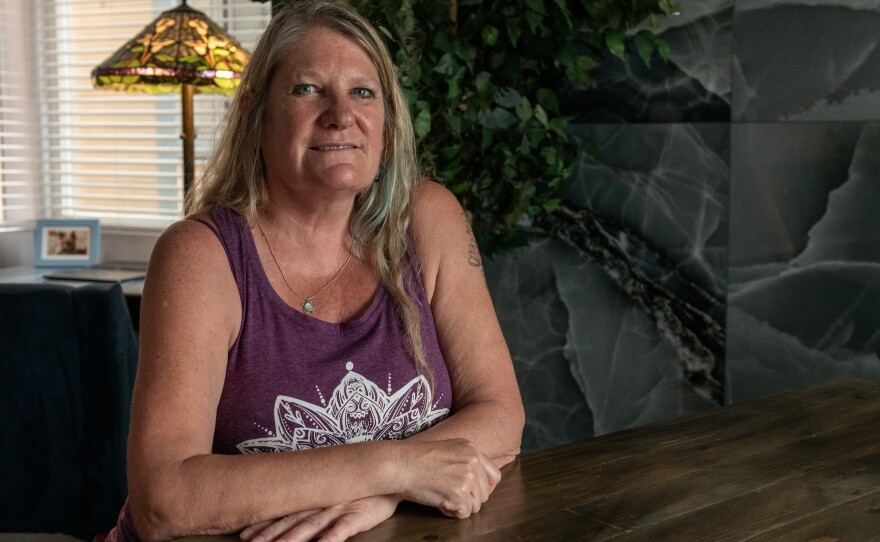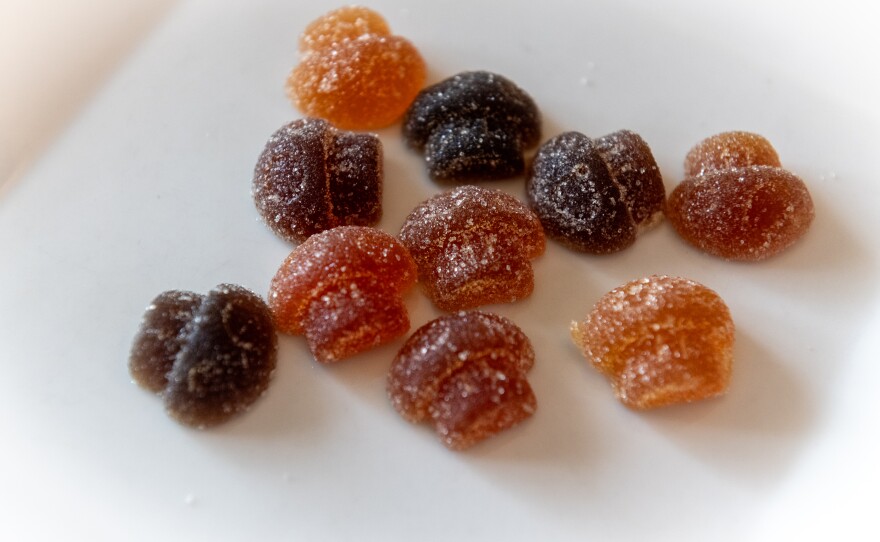Karen Friery said her traumas began in childhood. They started with family issues, then an early marriage leading to a difficult divorce, a high-stress biotech job and several health challenges. She was suffering from post-traumatic stress disorder, anxiety and depression.
“I've tried to find ways to resolve them, of course, with antidepressants and cycling through a lot of different antidepressants,” she said.
She said some medications would work at first but then lost their effectiveness.
In 2019, Friery, 57 who lives in Carlsbad, said she experienced a seizure after taking her antidepressant. That’s when she decided to seek alternative treatments.
“I really wanted to get away from the prescribed medication. So I began reading a lot about clinical trials with psychedelic drugs, ketamine, LSD and of course psilocybin,” Friery said.

Psychedelic mushrooms are illegal federally, but in California they are being sold in person and online.
The state's latest effort to legalize psychedelics through Senate Bill 1012, which aimed to legalize psychedelic-assisted therapy, failed.
A study by UC San Diego researchers found that microdosing-related Google searches increased by 1250% from 2015 to 2023, exceeding 3 million last year. The report showed the increase aligned with recent legal changes allowing psychedelic drug use in therapy and recreational cannabis.
Dr. Kevin Yang, one of the researchers, said psychedelics have grown in popularity both within the community as alternative medicines and in clinical research.
“There's really good clinical trials so far, studies showing that it's useful for treating, you know, things like depression, PTSD, substance use disorders,” he said.
But he still advises consumers to proceed with caution.
“It's hard to say whether microdosing truly works or not. Some studies have shown that it does. Others have shown that it doesn't. But that's not to say that there are probably lots of people out there who are doing it, and are certainly benefiting from it,” Yang said.
Yang said labels can’t always be trusted, especially when bought at vape shops or online.
“A lot of these things that they're selling aren't actually the psilocybin mushrooms that are being used in clinical trials. There's a mushroom called amanita muscaria,” Yang said.
He said some doses of the amanita muscaria mushroom can be poisonous.
As of Monday, nearly 50 illnesses across two dozen states have been tied to amanita muscaria mushroom-infused sweets, according to the Food and Drug Administration.
Yang said if people want to consume these substances, they should do their research.
“Whether that's their doctor, a therapist, someone who's trained and knows the evidence and clinical base,” he said.
Friery said she is cautious about her purchases. She spoke with a microdosing consultant who tailored a dosing plan and provided ongoing support.

“It began working, like immediately. I couldn't believe it." Friery said. "I wasn't intoxicated, you know, I wasn't impaired.”
She followed the protocol for about nine months, taking two pills or gummies a day. She created her own ritual, lighting candles, drinking tea and journaling.
“I'm not saying that, it's a magic cure. I just cured everything," she said. “Having some of these problems feel a little bit alleviated, just made the day easier to cope with.”





